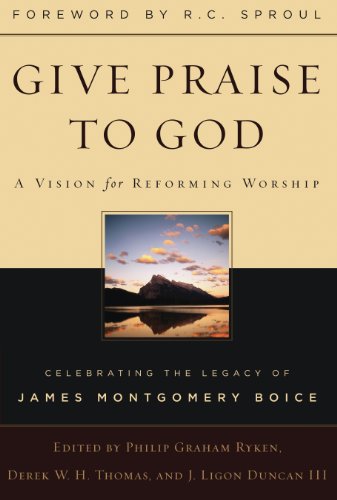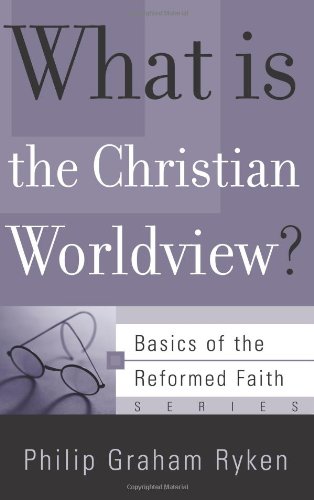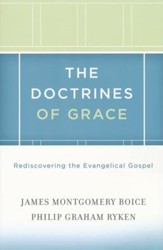
Quotes by Philip Graham Ryken
A sin is anything that violates the moral law of the universe. Any time we do what God tells us not to do or fail to do what God commands us to do, we commit a sin. And every time we sin, we are found guilty in the sight of God and deserve divine judgment.
When we say that God is holy we do not simply mean that He does not sin. That is true, of course. God’s holiness has an ethical dimension. The Bible says that “the holy God will show Himself holy by His righteousness” (Isa. 5:16b). God is undefiled in all His ways. He is the supreme, the superlative moral majesty in the universe. But God’s holiness refers to more than His ethics. Holiness refers to everything that distinguishes the Creator from His creation. It is the infinite distance between His deity and our humanity. Holiness is the very “Godness” of God, the sum total of all His glorious perfections.
Lead Us Not Into Temptation from When You Pray by Philip Graham Ryken, © 2000, Crossway Books, a division of Good News Publishers, Wheaton Illinois 60187, www.crosswaybooks.org, page 67.
[The Bible speaks of God’s glory in three ways.] First, glory is the inward majesty of God; second, it is the brightness God sometimes shines out into the world; third, it is the worship we offer to God. When we see God’s glory, the proper way for us to respond is to give Him the glory-to offer Him all the honor and praise He deserves. As Jonathan Edwards concluded, “The end of the creation is that the creation might glorify [God]. Now what is glorifying but a rejoicing at that glory He has displayed?”
God has already forgiven all our sins one-and-for-all through the death of Jesus Christ. Why then do we need to keep on asking for His forgiveness? The answer, of course, is that we are not perfect, and never will be in this life. We keep on sinning. We break God’s commandments every day, in thought, word, and deed. And although all our sins have been forgiven – past, present, and future – sin still has a way of disturbing our fellowship with God. It interferes with our intimacy with Him, estranging us from His holiness. When we sin, therefore, our personal relationship with God needs to be restored. The Puritans called this “renewing our repentance.” It means asking God to take the forgiveness He has already granted through Christ’s death on the cross and to apply it freshly and directly to our sins.
Lead Us Not Into Temptation from When You Pray by Philip Graham Ryken, © 2000, Crossway Books, a division of Good News Publishers, Wheaton Illinois 60187, www.crosswaybooks.org, page 129.
Are you a hypocrite? One way to tell is to compare the amount of time you spend in private prayer to the amount of time you spend in public prayer. As D. A. Carson rightly observes, “The person who prays more in public than in private reveals that he is less interested in God’s approval than in human praise. Not piety but a reputation for piety is his concern.”
The family of God is ethnically and culturally diverse. As Christians we not only permit such diversity, but we cherish it. This is because God Himself cherishes ethnic diversity. He is not color-blind; He is colorful. At His throne God welcomes worshipers “from every nation, tribe, people and language” (Rev. 7:9). His plan of redemption is for the peoples of the world in all their rich variety.
Our trouble is that so often we come to God with our greeds rather than our needs. Already having everything we need, we pray for what we want. This becomes the source of our discontent: we desire things that God has not promised.
Philip Graham Ryken Give Us Today Our Daily Bread from When You Pray by Philip Graham Ryken, © 2000, Crossway Books, a division of Good News Publishers, Wheaton Illinois 60187, www.crosswaybooks.org, page 112.
Although Christians cannot cherish religious pluralism, they must tolerate it… By tolerance I mean allowing other people to hold and to defend their own religious convictions. Tolerance does not mean that everyone has to agree with everyone else. That would not be tolerance at all. The word tolerance itself assumes disagreement, that there is something that must be tolerated. Tolerance thus applies to persons, but not to their errors. It does not require me to endorse your worldview. If you are not a Christian, I do not endorse your worldview. In the context of a friendship I will even try to talk you out of it… Yet it carries out these arguments with humility and civility.
The devil’s cleverest ruse is to make men believe that he does not exist. Or to give us the false impression that he is a silly old character in a red suit with little horns and a forked tail. Or to convince us that his devilish powers are so overwhelming that we are helpless to resist.
Philip Graham Ryken Lead Us Not Into Temptation from When You Pray by Philip Graham Ryken, © 2000, Crossway Books, a division of Good News Publishers, Wheaton Illinois 60187, www.crosswaybooks.org, p. 163.
If the Holy Spirit is at work in our lives, if He is convicting us of sin, if He is giving us faith in Jesus Christ, if He is persuading us that the Bible is God’s Word, if He is enabling us to call God Father, if He is making us fruitful in ministry, if He is helping us grow in grace – if the Spirit is doing any of these things at all – then no matter how much we are struggling in the Christian life, we have God’s seal of our eternal salvation.
To be holy is to be set apart in purity. It is to be separated from what is common and ordinary in order to be devoted to God’s service. Whatever is holy is distinguished from the secular and dedicated to the sacred.
Holy is Your Name from When You Pray by Philip Graham Ryken, © 2000, Crossway Books, a division of Good News Publishers, Wheaton Illinois 60187, www.crosswaybooks.org, page 66.
To identify your own idols, ask questions like these: What things take the place of God in my life? Where do I find my significance and my confidence? What things make me really angry? Anger usually erupts when an idol gets knocked off the shelf.
Once it was God’s holiness that separated us from God, the holiness of His being. Now it is God’s holiness that brings us to God, the holiness of the perfect sacrifice Jesus offered for our sins on the cross. God displayed His holiness by making us holy through His holy son.
Holy is Your Name from When You Pray by Philip Graham Ryken, © 2000, Crossway Books, a division of Good News Publishers, Wheaton Illinois 60187, www.crosswaybooks.org, page 72.
The grace we receive in forgiveness gives the grace to be forgiving.
As We Forgive Our Debtors from When You Pray by Philip Graham Ryken, © 2000, Crossway Books, a division of Good News Publishers, Wheaton Illinois 60187, www.crosswaybooks.org, page 135.
“This is how my heavenly Father will treat each of you unless you forgive your brother from your heart” (Matt. 18:35). It is either forgive or perish. God has forgiven the infinite debt of your sin. Now you must forgive anyone who sins against you. Otherwise, you prove that you have never received forgiveness in the first place, that you are still in God’s debt and therefore liable to the perfect severity of His justice.
As We Forgive Our Debtors from When You Pray by Philip Graham Ryken, © 2000, Crossway Books, a division of Good News Publishers, Wheaton Illinois 60187, www.crosswaybooks.org, page 140.
The ability to forgive is one of the surest signs of having been forgiven. It is part of the proof that we have received God’s grace… Those who are truly forgiven, truly forgive. The sins they commit are of greater importance to them than the sins they suffer.
As We Forgive Our Debtors from When You Pray by Philip Graham Ryken, © 2000, Crossway Books, a division of Good News Publishers, Wheaton Illinois 60187, www.crosswaybooks.org, page 138.
Forgiveness brings great joy, not only to the forgiven, but especially to the forgiver. The Greek term for “forgiveness” (aphiemi) comes from a word that means “to let go.” Forgiveness is a release, a letting go of self-destructive feelings such as anger, bitterness and revenge. Those attitudes poison intimacy with God and harmony with human beings.
As We Forgive Our Debtors from When You Pray by Philip Graham Ryken, © 2000, Crossway Books, a division of Good News Publishers, Wheaton Illinois 60187, www.crosswaybooks.org, page 142.
Election is best understood in hindsight, for it is only after coming to Christ that one can know for sure whether one has been chosen in Christ. Those who make a decision for Christ find that God made a decision for them in eternity past. It is like the words of the anonymous nineteenth-century hymn: I sought the Lord, and afterward I knew He moved my soul to seek Him, seeking me; it was not that I found, O Savior true; no, I was found of Thee.
Theologians sometimes speak of “double predestination,” which means that according to Gods decree, some sinners will never repent and thus finally will be lost in their sins. Strictly speaking, double predestination is not a biblical term, for the Bible nowhere speaks of anyone being predestined to hell. It reserves the verb “predestine” (proorizo) for the salvation of sinners unto eternal life. However, even if it is not a biblical term, double predestination expresses a biblical truth. If God has made an advance decision about which people He will save from their sins, He has also made an advance decision about which people He will leave in their sins (Romans 1:28). The theological term for this is “reprobation.” It means that when God established His plan of salvation, He decided to pass some sinners by.
When you hear the glad news that Christ is King, the thing to do is to submit to His rule. When you repent for your sins and believe in Jesus Christ, God establishes His rule in your heart. This is part of what Jesus meant when He said, “the kingdom of God is within you” (Luke 17:21). Anyone who has ever entered that kingdom has done so by praying to God, “Your kingdom come” or words to that effect. That is the way the kingdom comes to you and the way you come into the kingdom. To become a Christian is simply to ask God to set up His throne as the supreme King of your heart.
Lead Us Not Into Temptation from When You Pray by Philip Graham Ryken, © 2000, Crossway Books, a division of Good News Publishers, Wheaton Illinois 60187, www.crosswaybooks.org, page 83-84.
The coming of the kingdom has often been compared to the way the Allies defeated Germany in 1944. For all intents and purposes, World War II was over on D-Day, when British and American troops established a beachhead in France. There were still battles to be fought, of course, and lives to be won and lost. But from that point on, the Germans were fighting a losing battle. All that remained was for the Allies to liberate Europe. As far as the kingdom of God is concerned, D-Day was Good Friday. That was Satan’s last mad attempt to defeat God’s King and have Him betrayed, tried, and nailed to the cross. But Satan was only able to wound Him. By dying on the cross for our sins, Jesus actually struck a death-blow to sin, death, and the devil. Now the outcome of the battle between the two kingdoms is certain. All that remains is for God to liberate the captives of Satan’s kingdom and bring them into the kingdom of His Son.
Lead Us Not Into Temptation from When You Pray by Philip Graham Ryken, © 2000, Crossway Books, a division of Good News Publishers, Wheaton Illinois 60187, www.crosswaybooks.org, page 86.
Theologians sometimes describe this delay as the “already” and the “not yet.” God’s kingdom has already come, but it is not yet here in all its glory. Christ has already come, but He has not yet come again. The Puritans described the same truth in a different way. They made a distinction between the “kingdom of grace” and the “kingdom of glory.” These are not two different kingdoms, but one kingdom in two installments.
Lead Us Not Into Temptation from When You Pray by Philip Graham Ryken, © 2000, Crossway Books, a division of Good News Publishers, Wheaton Illinois 60187, www.crosswaybooks.org, page 87.
God’s plan is to establish His kingdom through the preaching of the cross. His purpose is to rule in the hearts of His people. The progress of this spiritual kingdom will be steady, but slow. In one sense, the kingdom has already come with the death and resurrection of Jesus Christ. It continues to grow as His cross and His empty tomb are preached in all the world. There is another sense, however, in which we are still looking for the kingdom, waiting for the King to come again. We live in the kingdom of grace, where Christ rules by faith, but we wait for the kingdom of glory, when Christ will reign supreme over all.
God’s name expresses His person; it reflects who He is. The name is God Himself, as He has made Himself known. It reveals His divine nature and His eternal qualities. God is who His name is. Thus all the biblical names and titles for God reveal His true character. Most of them refer to one of His actions or attributes. He is Jehovah-Jireh, the God who provides. He is El-Shaddai, the Mighty God. He is the Holy One, the Everlasting Father. He is the Maker and the Redeemer. He is the Shepherd, the Rock, and the Hiding Place. Whatever the name, God is who His name is because He does what His name says.
Lead Us Not Into Temptation from When You Pray by Philip Graham Ryken, © 2000, Crossway Books, a division of Good News Publishers, Wheaton Illinois 60187, www.crosswaybooks.org, page 68.
There is such a big difference between forgiveness and reconciliation. It takes two to reconcile, so it is not always possible to be reconciled. But it takes only one to forgive. So if people do you wrong, forgive them, whether or not they ask for forgiveness. You cannot cancel their sin. Only God can do that, and He will only do it if they repent. But what you can do is set aside your own anger, bitterness, and resentment towards them.
As We Forgive Our Debtors from When You Pray by Philip Graham Ryken, © 2000, Crossway Books, a division of Good News Publishers, Wheaton Illinois 60187, www.crosswaybooks.org, page 141.
If you want to know what God wants you to do, the first question is not, “What is God’s will for my life?” as if you have to read God’s mind to know what you ought to do. Really, the first question about God’s will is, “Am I willing to do it?” There is no sense asking for God to reveal His will for your life unless you are committed to doing what He wants done.
Your Will Be Done from When You Pray by Philip Graham Ryken, © 2000, Crossway Books, a division of Good News Publishers, Wheaton Illinois 60187, www.crosswaybooks.org, page 100.
The reason the church tries so many other things besides preaching Christ is because it suspects the kingdom can be established some other way. But there is no other way. People will not come into the kingdom because they like the minister, support the children’s program, or enjoy the music. They may come into a church that way, but not into the kingdom. The only way people ever come into God’s kingdom is by hearing His heralds proclaim a crucified King.
No other religion has ever claimed that its historical founder is the one and only supreme deity. Nor has any other religion ever dared to suggest that the one true God loves us enough to die for us. This is the glory and the beauty of Christianity. Because God is just, there had to be a payment for sin. Because God is love, He was willing to make the payment in the Person of His own Son.
Material affluence in no respect lessens my need to rely on God. Actually, it increases it. I am in greater spiritual danger when I have plenty than when I have nothing. Hence the almost greater need of the wealthy to cry to God for mercy that they may not fail to trust Him.
The devil is relentless. No sooner have we resisted one temptation than his demons come after us with another. He is persistent. If we show the slightest sign of weakening, he will keep pressing us until we sin. He is crafty, gradually leading us down the road of destruction. He starts with a small temptation. When it succeeds, he presents us with a slightly greater temptation, slowly drawing us deeper and deeper into sin. He is subtle, so subtle that sometimes we find ourselves sinning before we are even aware of being tempted. Satan is also creative. He offers us a complete line of transgressions to choose from: greed, lust, hatred, despair, and anger.
Lead Us Not Into Temptation from When You Pray by Philip Graham Ryken, © 2000, Crossway Books, a division of Good News Publishers, Wheaton Illinois 60187, www.crosswaybooks.org, page 146-147.
[Philosophical pluralism] is the ideology that refuses to allow any single religion or worldview to claim an exclusive hold on the truth. It denies that there are any absolutes. It insists that all religions and worldviews must be seen as equally valid…To suggest otherwise is to be arrogant and intolerant. No religion can claim to be superior to any other. You may practice your faith as long as you realize it is only one of many true faiths. If what you believe is true at all, it is only relatively true… [But] at the same time that philosophical pluralism denies other religions the right to lay claim to the truth, it presents its own worldview as the absolute truth… In the end philosophical pluralism’s dismissal of dogma turns out to be just another dogma.
The fact that [God] does not tempt us (Jas. 1:13) does not mean that our temptations are somehow outside of His control. God is sovereign over all the affairs of life, including every temptation to sin. Although He does not cause our temptations, He does allow them to occur.
Lead Us Not Into Temptation from When You Pray by Philip Graham Ryken, © 2000, Crossway Books, a division of Good News Publishers, Wheaton Illinois 60187, www.crosswaybooks.org, p. 151.
The weaknesses we see in the people of the Bible are the very weaknesses we ought to recognize in ourselves. Like Eve, who ate the forbidden fruit, we are vulnerable to temptation when we act on our own. Like Abraham, who lied about his wife to save his neck, we are vulnerable to temptation when we are scared. Like David, who slept with Bathsheba while his men were off to war, we are vulnerable to temptation when we are idle. Like Elijah, who wanted God to end his life, we are vulnerable to temptation when we are exhausted. Like Peter, who denied his Lord even after he promised to die for him, we are vulnerable to temptation when we are overconfident. In other words, we are vulnerable to temptation practically all the time.
Lead Us Not Into Temptation from When You Pray by Philip Graham Ryken, © 2000, Crossway Books, a division of Good News Publishers, Wheaton Illinois 60187, www.crosswaybooks.org, p. 148.
If you wish to come into God’s kingdom, therefore, you must ask God to rescue you “from the dominion of darkness” and bring you “into the kingdom of the Son He loves” (Col. 1:13) You must renounce your deal with the devil and swear allegiance to Christ the King. You must say, in the beautiful words of hymnwriter Frances Havergal, “Take my heart, it is Thine own; it shall be Thy royal throne.”
Lead Us Not Into Temptation from When You Pray by Philip Graham Ryken, © 2000, Crossway Books, a division of Good News Publishers, Wheaton Illinois 60187, www.crosswaybooks.org, page 84.
America has now embarked on a foolhardy experiment to discover what happens to a culture in which nearly half the children do not live with their fathers. One result is that many people do not know how to call God “Father,” nor do they want to.
We need to learn how wrong it is to think of prayer as a way of getting something from God. People often think of prayer as a way of talking God into doing what they want Him to do. This is what lies behind “name it and claim it” Christianity, the idea that I can influence God by offering the right kind of prayer. But that attitude ultimately leads to hell. As C. S. Lewis once observed, “There are only two kinds of people in the end: those who say to God, ‘Thy will be done,’ and those to whom God says, in the end, ‘Thy will be done.’ All that are in Hell, choose it.” Besides, why would anyone want to change God’s mind? The Bible says that His will is “good, pleasing and perfect” (Rom. 12:2). Imagine what a mess our lives would be in if God always did what we wanted Him to do! For unlike God’s will, our own wills are evil, displeasing, and imperfect.
Your Will Be Done from When You Pray by Philip Graham Ryken, © 2000, Crossway Books, a division of Good News Publishers, Wheaton Illinois 60187, www.crosswaybooks.org, page 94.
Authentic, biblical Christianity has always been an exclusive religion. This became apparent during the Roman Empire. When the Emperor Alexander Severus heard about Christianity, he placed an image of Christ beside the other gods in his private chapel, just to be safe. The Romans were happy to welcome Jesus into their pantheon. What the Romans couldn’t understand was why Christians refused to reciprocate. If the emperor was willing to worship Christ, why weren’t Christians willing to worship the emperor? Yet the early Christians insisted that in order to worship Christ at all, they had to worship Christ alone. They were even willing to stand up for this conviction by playing “Christians and lions” at the Colosseum.
Some Christians misunderstand God’s plan for His kingdom. They want to establish it their own way rather than waiting for God to do it His way. God’s way of establishing the kingdom is primarily through the preaching of the cross. But that does not seem very effective to most people. They would prefer to use force, which is the kind of thinking that leads to bloody crusades. Or they would rather entertain people into the kingdom, which is the kind of thinking that leads to man-centered worship.
Holiness means separation. Something holy is set apart. In the case of God, holiness means He is set apart from everything He has made. Holiness is not simply His righteousness (although that is part of it), but also His otherness. It is the distinction between the Creator and the creature, the infinite distance between God’s divinity and our humanity.
To believe that two contradictory religions are both true is like saying, “2+2=4, or 5, or 37, or whatever you like.” To believe all religions simultaneously is to become hopelessly entangled in self-contradiction. One simply cannot accept the Hindu belief that there are 3000,000 or more gods and at the same time accept the Muslim belief that there is only one god. Nor can one embrace either Hinduism or Islam and Buddhism because historic Buddhism does not believe in a personal God at all. Or consider the religious opinions about the afterlife. Shintoism says there is no afterlife, just the here and now, so make the most of it. Buddhists seek Nirvana, the complete absence of desire. Christianity teaches that heaven is a place where all pure desires are satisfied in Jesus Christ (Rev. 22:4). Who is right? If there is a heaven at all, does it negate or satisfy desire? Opinions about judgment differ as well. Christianity teaches that “man is destined to die once, and after that to face judgment” (Heb. 9:27). Hindus believe in a seemingly endless series of reincarnations. Well, which is it? Both views cannot be true.
Religion is not a preference. Although people are allowed to hold their own opinions, they cannot make up their own truth. This cannot be done with religion any more than it can be done with mathematics. To insist that all religions are equally true is another way of saying that all religions are equally false… If every religion is compatible with its opposite, why bother with religion at all?
Realize that when you put your faith in Jesus Christ, there can be no holding back. Your will must hand God its letter of resignation. For unless you submit to God’s will in everything, you are not submitting to Him in anything. Think about it. If you only follow God’s will when it happens to correspond to your own will, then you never have to surrender at all. You are simply asking God to endorse your own agenda as often as He can. But if you want new life in Christ, you must adopt God’s agenda and throw away your own.
Your Will Be Done from When You Pray by Philip Graham Ryken, © 2000, Crossway Books, a division of Good News Publishers, Wheaton Illinois 60187, www.crosswaybooks.org, page 98.
Every temptation is a kind of test, but not every test is a temptation. Tests and temptations have different purposes, and they come from different places. Tests are designed to show what someone can do. Their purpose is positive, which explains why God himself tests people, as he tested Abraham (Heb. 11:17). A test is a trial posed by God to prove the strength of our faith. Temptations, on the other hand, are more negative. Their explicit purpose is to entice people to sin, which is why they come from the Evil One. A temptation is a trial posed by Satan, with the wicked hope that we will fail.
Christianity insists that everyone is a sinner through and through. Our minds, hearts, wills, and emotions are in rebellion against God. When it comes right down to it, the problem is not that there is only one way to God (through Christ). The real problem is that human beings will not follow God at all.
On the one hand, Christianity is the most exclusive religion imaginable. It insists that belief in Jesus Christ is absolutely necessary for salvation. Jesus is the only way. You must go to Him to get eternal life. On the other hand, Christianity is the most inclusive religion possible because it makes salvation accessible to everyone. Salvation is offered for all people through one Person. Whoever believes in Him will not perish. Anyone who receives or believes in Jesus will live forever with God. There are no racial, social, intellectual, or economic criteria that prevent anyone from joining God’s family. One of the problems with the other religions of the world is that they all smack of elitism… Only Christianity offers salvation to everyone as a free gift.
Recommended Books





